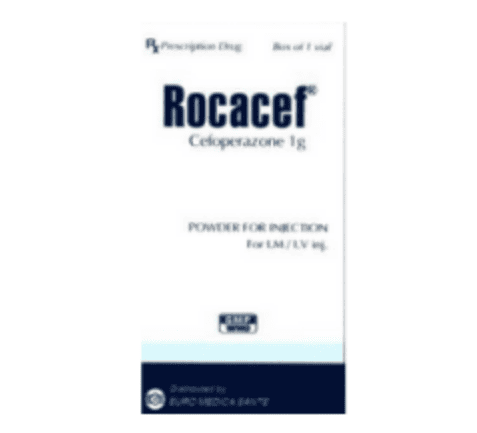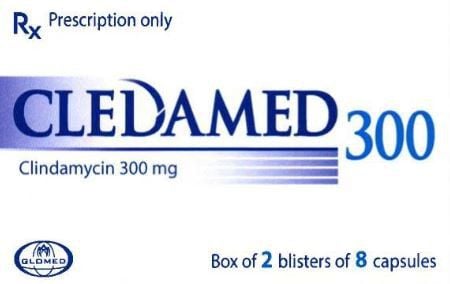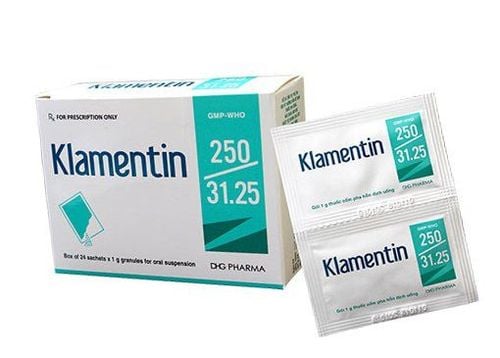This is an automatically translated article.
Meronem medicine 1g contains the main ingredient is Meropenem, which is used in the treatment of bacterial infections when suffering from pneumonia, urinary tract or intra-abdominal,... For more information about this drug, please refer to this article. write below.
1. Learn about the use of the drug Meronem 1g
Meronem intravenous infusion is usually prescribed by doctors for adults and children over 3 months of age to treat infections caused by one or more bacteria sensitive to Meropenem, for example:
Pneumonia and inflammatory diseases hospital lung; Urinary tract infections appear complications; Intra-abdominal infections with complications; Gynecological infections such as: endometritis, pelvic inflammatory disease; Skin infections and complications in skin structures; Meningitis ; Blood infection; Suspected cases of infection in adults due to febrile leukopenia. Research has shown that Meronem can be used alone or in combination with other antibacterial drugs to treat mixed infections, cystic fibrosis and chronic lower respiratory tract infections. However, the effectiveness will also depend on a number of different cases.
2. Dosage of the drug Meronem for each subject
For adults:
Dosage and duration of drug use will depend on the level and type of infection as well as the physical condition of each person; When treating pneumonia, urinary tract infections, endometritis, skin infections and the recommended dose structure for 1 day is every 8 hours, 500mg of Meronem intravenously (IV); When treating hospital-acquired pneumonia, peritonitis, suspected infection in patients with leukopenia, sepsis, the recommended dose of 1g per day is to inject 1g of Meronem intravenously (IV); When treating cystic fibrosis and meningitis, the dose indicated for 1 day is 2g every 8 hours; Treatment of infections or suspected Pseudomonas aeruginosa infections, the indicated dose for adults is at least 1g every 8 hours (maximum is 6g/1 day, divided into 3 times); Similar to other antibiotics, when using, users need to be very careful, especially when using Meropenem monotherapy for serious infections or suspected Pseudomonas aeruginosa infections of the lower respiratory tract; During use, patients should visit their doctor regularly to test the sensitivity of the drug when treating infections caused by Pseudomonas aeruginosa; For patients with impaired renal function, dose reduction should be considered; Dosage will be unchanged in patients with hepatic impairment and in the elderly with normal renal function or creatinine clearance > 50ml/min; For children:
Children from 3 months to 12 years old, the recommended dose is from 10 to 20 mg/kg every 8 hours depending on the level and type of infection as well as the condition of each child; Treatment of infections or suspected Pseudomonas aeruginosa infections, the indicated dose for children is 20mg/kg every 8 hours (maximum 120mg/kg per day, divided into 3 times); For children weighing over 50kg, the dose is equivalent to that of adults; Dosage of 40mg/kg every 8 hours is applied to children with meningitis; For children with renal impairment, there are no studies on the dose, so it is necessary to consult a doctor.
3. Instructions for using Meronem
Meronem drug 1g will be injected through an intravenous line in about 5 minutes or intravenous infusion for 15-30 minutes.
4. Possible side effects when taking Meronem 1g
Serious side effects are rare with Meronem 1g because it is well tolerated. However, there are still some common side effects such as:
Increased platelets, increased ALT and AST enzymes in the liver; increased levels of alkaline phosphatase in the blood; increased lactate dehydrogenase in the blood; increased gamma–glutamyltransferase (GGT); headache, inflammation, pain; Diarrhea, vomiting, abdominal pain; Rash, itching. Some less common side effects include:
Oral or vaginal candidiasis; Eosinophilia, thrombocytopenia , leukopenia or neutropenia, increased bilirubin in the blood; Paresthesia, urticaria; Thrombophlebitis ; Had a convulsion. If there are any abnormal signs after taking the medicine, immediately go to the nearest doctor or medical facility for timely support. To ensure the best safety, please consult carefully from a professional doctor.
5. Contraindications of the drug
Do not use the drug for any case of allergy or hypersensitivity to the active ingredient or any of the excipients in the drug; People who are sensitive to carbapenem antibacterial drugs; People experiencing anaphylaxis, severe skin reactions to beta-lactam antibacterial drugs such as penicillin or cephalosporin; Consult your doctor if you are taking potentially nephrotoxic drugs; Meronem should not be co-administered with valproic acid/sodium valproate because it may decrease serum valproic acid concentrations; Contraindicated in children under 3 months of age, pregnant and lactating women.
6. Interactions of the drug Meronem
Probenecid will inhibit the renal excretion of meropenem, increasing the half-life and plasma concentration of meropenem; Some studies have shown that blood levels of valproic acid decrease when co-administered with carbapenems, so the concomitant use of these two drugs should be avoided; Concomitant use of antibiotics with Warfarin may increase the anticoagulant effect of the drug. Above is information about uses, dosage and precautions when using Meronem. Meronem is in powder form for injection or intravenous infusion, so it should be stored in a cool place, not frozen, at a temperature above 30°C.
Please dial HOTLINE for more information or register for an appointment HERE. Download MyVinmec app to make appointments faster and to manage your bookings easily.













